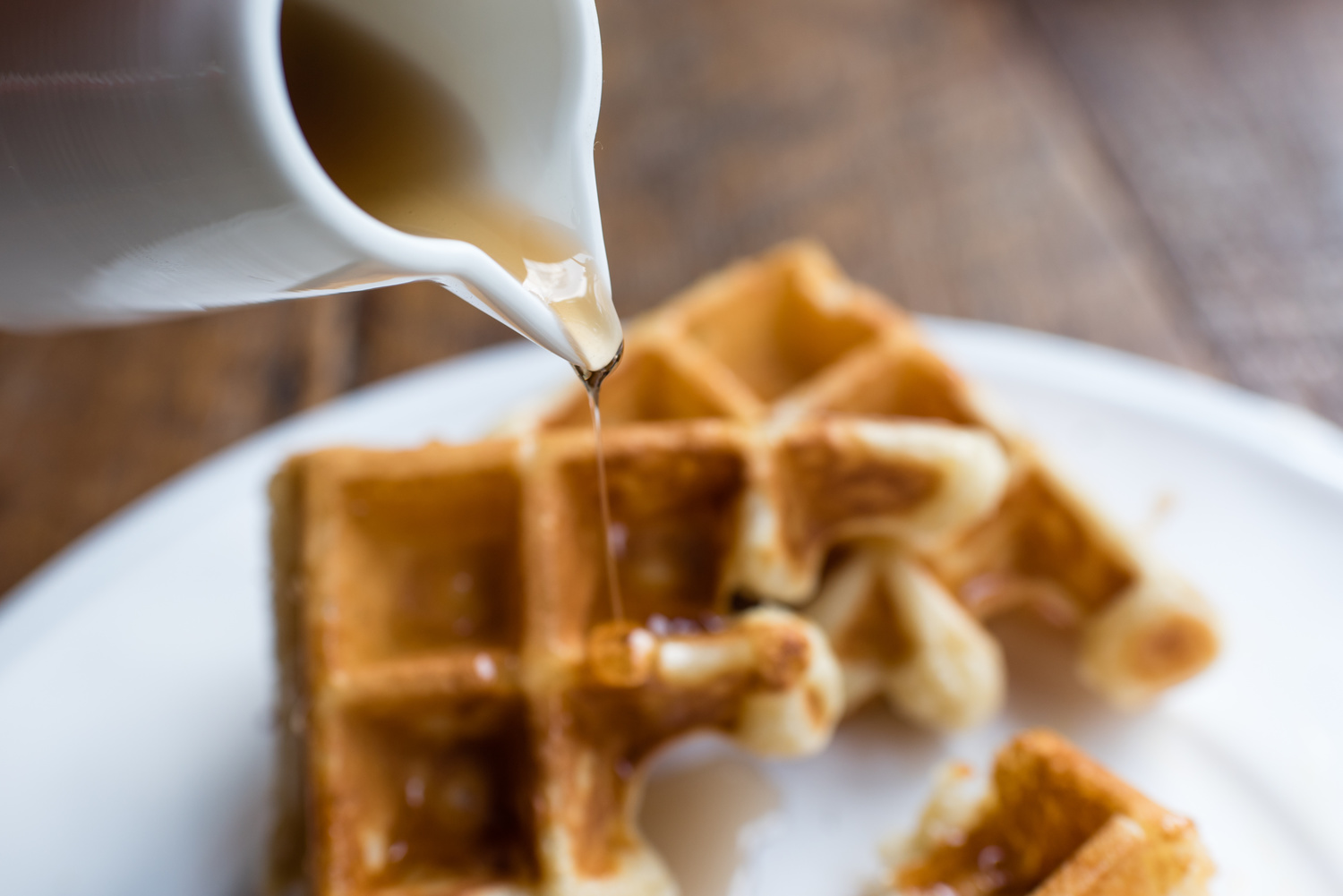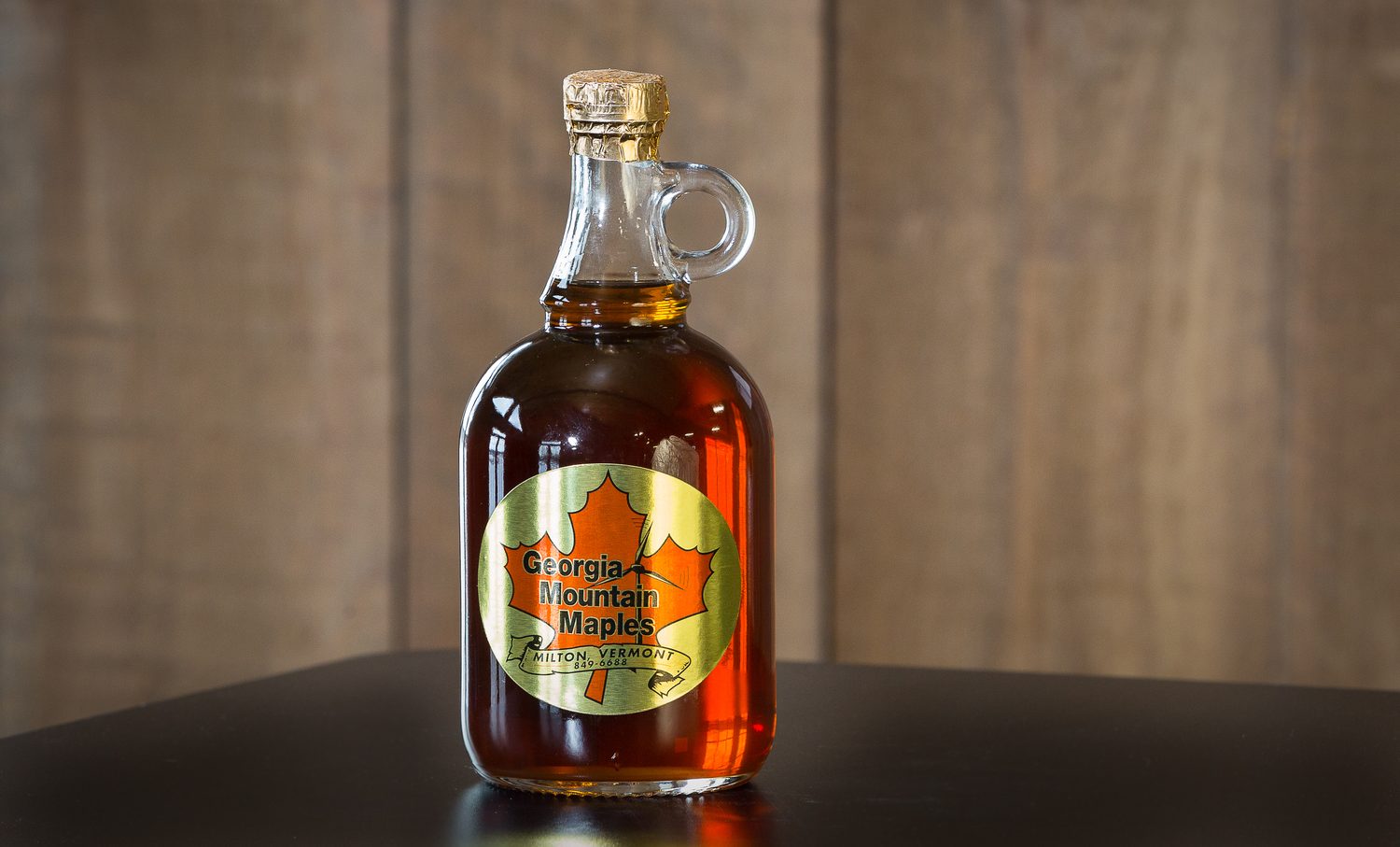When looking to either lose weight, have a more streamlined physique or simply eat healthier to feel better, several substitutions can be made. Low-carb, low-fat options can be switched out for regular food, and added sugars are generally some of the first things to go.
However, if you’re not adding sugar to your food, how are you going to sweeten it up? Two of the most common natural sweeteners are maple syrup and honey. That’s right, leave the Splenda and saccharine in the cupboard and give these natural substances a chance to sweeten up your diet.
Calorically, honey and maple syrup aren’t all that different – not different enough to make a fuss over, anyway. However, they do have some differences in macronutrient values. Depending on how clean you’re eating, or which macros you’re trying to fit more or less of in your diet, you pick one or use a little bit of both!
Here is the macronutrient breakdown on maple syrup and honey, and the differences in between both of them. Take a look at the macros and other nutritional information and see which of these natural sweeteners works best for you!
Comparing Carbs
Carbohydrates, your body’s main source of energy, are important to have in your diet. However, if your intake of carbohydrates is too high, your body will store them as fat. Cutting carbs can be a quick way to drop a few pounds if your intake is already pretty high. Or, your carb intake might be just fine and other macronutrients are what you’re worried about.
Maple syrup contains 216g of carbohydrates per cup, of which 192g are sugars. When looking at carbohydrates, you always want to take a look and see how many of the carbs come from sugars. Luckily, the sugars in maple syrup and honey are natural, so they shouldn’t weigh too heavily on your mind.
Honey contains 279g of carbs per cup, with 278 of those coming from sugar. A cup of honey also has .7g of dietary fiber, which could play into your decision.
Comparing Calories
Dieting is all about calorie control. If you eat healthier, but you aren’t cutting calories, you’ll feel better, but won’t lose any weight unless you start a more intense exercise routine to burn more calories. In order to lose weight, you must be at a caloric deficit, or burning more calories than you are taking in.
If you’re just trying to go natural or eat better to feel better (and not necessarily lose weight), then this is somewhat irrelevant to you because calories shouldn’t be at the forefront of your mind as long as you’re maintaining a good diet and exercise routine.
With that being said, let’s talk about the calorie count in both maple syrup and honey so that you know what you’re dealing with.

A cup of honey contains 1031 calories, which almost entirely come from the carbohydrates we already mentioned. As an added bonus, there is 1g of protein in a cup of honey – not an incredible amount, but enough to be considered a sweet little perk of choosing honey to be your sweetener of choice.
A cup of maple syrup has considerably less calories (source) at a calorie count of 840, which are mostly carbohydrates with 5.4 calories from fats.
Remember, fats in moderation are healthy. You don’t want the majority of your calories coming from fat, but having some is important, as fats serve several important functions in your body, and are your secondary energy supplier when you run out of carbohydrates while exercising.
Comparing Vitamins
Getting a good amount of vitamins in your diet is crucial to healthy living. If you’re getting your servings of fruits and vegetables, you should be fine, but an extra helping hand in reaching your daily values should certainly be more welcome than not.
In this aspect, honey comes out on top, providing a good amount of vitamin C, and also containing vitamin B6, niacin and folate. Maple syrup contains thiamin, which honey doesn’t, but that has less of an impact on your diet than the combination of vitamins contained in honey.
While honey does contain more vitamins than maple syrup, including vitamin C, B6, niacin, and folate, maple syrup contains vitamins B1 and B2, which are also important for health (source).
Comparing Minerals
What maple syrup is lacking in vitamins, it makes up for in minerals, while honey is a bit lacking in this round. Maple syrup contains quite a bit more calcium, iron, potassium, zinc and copper than honey. The only upper hand honey has on maple syrup is that honey contains fluoride.
Maple syrup definitely takes the cake in the mineral department. Getting your daily values of minerals will help with your nails, skin, hair, digestive health, longevity and several other aspects of your health.
Maple Syrup vs Honey: The Winner
Although different goals and many factors can be in play here, with the strict ideology of “healthier vs. less healthy”, our winner is good ol’ maple syrup (crowd goes wild).

What it really boils down to is this: a cup of maple syrup has nearly 300 fewer calories than honey, fewer carbs and considerably more minerals for overall health.
The only slight drawback of using maple syrup as a sweetener is that everything is going to taste like, well, maple syrup. If you don’t have a problem with that, or you have a diet strictly formed around breakfast foods, more power to you.
Conclusion
While maple syrup may be the healthier option of the two, that certainly doesn’t mean that honey is bad for you. Honey brings a decent amount of vitamins, protein and dietary fiber to the table, which is more than enough reason to have it in your pantry. Honey is also a little more versatile due to its taste, which isn’t as strong as maple syrup.
Choosing a natural sweetener is a big step in a very healthy direction, and getting into particulars, looking into the macronutrient values and other nutritional values is an even greater indicator to your commitment to health.
Whether you’re bulking, leaning out, losing weight or simply trying to be the best you that you can be, take all that we’ve talked about into consideration and incorporate maple syrup, honey or a little bit of both into your diet to add a little bit of sweetness to your healthy lifestyle.